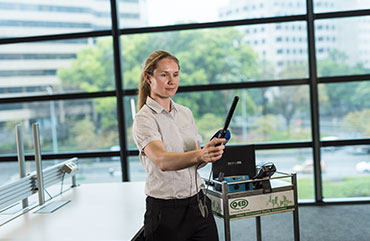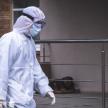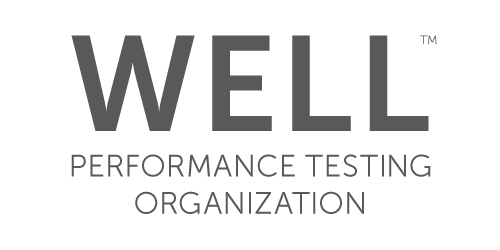
31st
Slip Testing in Shopping Centres
by Aidan Donovan
Slips, trips, and falls present a significant safety concern in shopping centres, making slip testing a crucial aspect of risk management. However, a potential conflict of interest arises when the cleaning company responsible for maintaining a clean environment is also tasked with managing slip testing. In this article, we will explore the implications of this conflict and the importance of ensuring the integrity of floor surfaces and cleaning chemicals in shopping centre safety.
In many shopping centres, cleaning companies are not only responsible for keeping the premises tidy but are also entrusted with overseeing slip testing. While this arrangement may seem convenient, it raises concerns about impartiality. When the same entity responsible for maintaining the cleanliness of the shopping centre is in charge of slip testing, there is a risk that their focus might inadvertently shift towards downplaying slip risks to protect their reputation.
Floor Surface Integrity and Cleaning Chemicals:
Effective slip testing goes beyond mere cleanliness; it involves assessing the integrity of floor surfaces and evaluating the impact of cleaning chemicals on slip resistance. The use of inappropriate cleaning chemicals can leave a residue on the floors, potentially making them more slippery and hazardous to shoppers and visitors. The conflict of interest lies in the cleaning company's involvement in both maintaining the cleanliness and evaluating slip risks, which may influence their objectivity in identifying and addressing potential hazards.
Impartiality and Accurate Risk Assessment:
To ensure the highest level of safety, shopping centres should engage independent, NATA certified professionals for slip testing. Impartial third-party experts possess the necessary expertise and experience to conduct comprehensive slip tests, evaluate floor surfaces, and assess the impact of cleaning chemicals without any bias or conflict of interest. Independent slip testing guarantees accurate risk assessment and empowers shopping centres to implement targeted safety measures effectively.
Legal Implications:
The conflict of interest around cleaning companies managing slip testing could have severe legal repercussions for shopping centres. In the event of a slip and fall incident, if negligence is proven, shopping centres may face costly litigations, reputational damage, and increased insurance premiums. Demonstrating diligence and a commitment to impartial safety assessments through independent slip testing can help shopping centres protect themselves against potential legal risks.
Collaborative Safety Efforts:
The responsibility for a safe shopping environment extends beyond the cleaning company alone. Facility managers, building owners, and cleaning companies must work together to prioritize safety. Encouraging a collaborative approach that places the safety of shoppers and visitors first will ensure that slip testing is conducted independently and that floor surfaces are regularly maintained and free from hazards.
In Summary:
- The conflict of interest that arises when the cleaning company is responsible for slip testing raises legitimate concerns about impartiality and accurate risk assessment in shopping centres.
- To ensure compliance with WHS laws and managing legal risk liability, independent slip testing is crucial.
- By fostering collaboration among all stakeholders and prioritizing impartial safety assessments, shopping centres can create a secure environment for shoppers and visitors, ultimately enhancing their reputation and maintaining a commitment to public safety.
Categories
Recent Posts
Navigating the GRESB 2024 Updates: Key Changes and Implications
26th Nov
GRESB’s 2024 Real Estate Assessment introduced significant changes, refining how ESG performance is measured and reported. These updates a...
Trichloramine and Indoor Air Quality in Swimming Pools
05th Nov
For swimmers and pool workers alike, the characteristic "chlorine smell" at indoor swimming pools is part of the experience. Howev...
Indoor Air Quality Takes Centre Stage: A New Government Report on Airborne Virus Transmission
30th Sep
The importance of Indoor Air Quality (IAQ) has gained significant attention following the release of a groundbreaking report from Australia�...

















